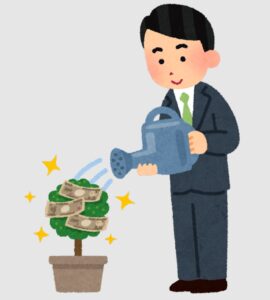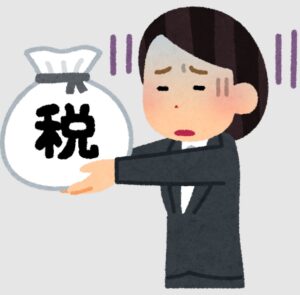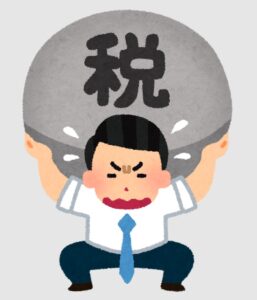管理人オススメコンテンツはこちら
「おすすめの貯金方法|コツをつかんで未来の安心を積み重ねよう!」
今日は【貯める力】
おすすめの貯金方法とコツ
についてお話しします。
●貯められない人は、搾り取られるだけ~今すぐ“自分ファースト”で貯金を始めろ~

今日の相談はこちら。
「貯金方法についてお聞きしたいです。
おすすめの貯金方法は有りますか?
貯金の考え方のコツ等を
教えてもらえないでしょうか?」
とのこと。
貯金のコツ3選を伝授します。
(1)収入の一部を最初から無いものとして貯金する
『なかったもの貯金』ですね。
私自身が好きなのはこの方法です。
(2)大きな目標と小さな目標を決める
(3)1ヶ月の支出をちゃんと把握する
定期的に見直した方がいいんですけど
とにかくまずは1回やりましょう。
●目的なき貯金は、砂漠に水を撒くようなもの~ゴールのない努力に、結果は訪れない~

なぜお金が貯まらないのか?
問題点(1)収入より支出が多い

これは当たり前の話で簡単ですね。
貯金するには
支出を減らして収入を増やすしか
無いんですよね。
非常に当たり前の話です。
お金が貯まらない人の特徴ですが
目的や目標金額を決めずに
なんとなく貯金してるという人が
多いんですよ。
人間ってやはり弱い生き物なので
なんとなくの貯金だと

長続きしなかったり
使ってしまうんですよ。
収入の額によって
生活レベルを決めずに生活をすると
例えば
年収が400万円だから
400万円の生活をする。
これが500万円や
600万円に上がったら
500万円の生活
600万円の生活
ドンドン収入の額に合わせて
上がっていっちゃったりとか
今の収入の額を基準に
生活をしてしまうというのが
お金が貯まらない原因です。
これが有るから
支出が上がっちゃうんですよね。
問題点(2)支出の内容を把握していない

自分の支出が
何にいくら使ってるか把握していない。
これが出来てない人が
すごく多いんですよ。
問題点(3)価格ではなく価値で判断出来てない

物の価格じゃなくて
『価値』で判断出来てないという事です。
これらがお金が貯まらない人に
よくありがちな特徴です。
過去に見てきた人にしても。
特に(2)の
何にいくら使ってるか把握してない
という人が多いですね。
〜〜〜つづく〜〜〜
Special Thanks college president Ryo.

●おまけ
≪≪Chat-GPTくんによる要約→perplexityちゃんによる文章まとめ≫≫
貯金がなかなか続かない人は、まず「自分ファースト」の意識で貯金を始めることが大切です。
おすすめの方法は、収入の一部を最初から「なかったもの」として先に貯金する「先取り貯蓄」です。これにより、無理なく貯金が習慣化します。
また、大きな目標と小さな目標を設定することで、貯金の目的が明確になり、モチベーションが続きやすくなります。
さらに、1ヶ月の支出をしっかり把握し、定期的に見直すことも重要です。多くの人は「何にいくら使っているか」を把握しておらず、無駄遣いが増えてしまいます。
収入が増えたからといって生活レベルを上げすぎることも、貯金ができない原因です。
価格ではなく「価値」で判断し、本当に必要なものにお金を使う意識を持ちましょう。
これらのポイントを実践すれば、無理なく貯金を続けられ、将来の安心につながります。
Citations:
[1] https://www.navinavi-hoken.com/articles/how-to-save-money
[2] https://www.iyobank.co.jp/sp/iyomemo/entry/20221110.html
[3] https://www.ashikagabank.co.jp/blog/18
[4] https://www.hokennomadoguchi.com/columns/seimei/saving/recommend/
[5] https://www.resonabank.co.jp/kojin/column/shisan_kihon/column_0023.html
[6] https://my-best.com/articles/482
≪≪Chat-GPTくんによる英訳≫≫
Today, let’s talk about the power to save — recommended saving methods and key tips.
People who can’t save money often end up being squeezed dry. That’s why it’s crucial to start saving now, with a “me first” mindset.
Here’s a recent question I received:
“I’d like to ask about how to save money.
Do you have any recommended methods?
Could you also share some helpful ways of thinking about saving?”
In response, here are three key tips for saving money:
1. Save a portion of your income as if it never existed.
This method is often called “phantom saving.” Personally, I really like this one.
2. Set both large and small saving goals.
Having specific targets gives your saving purpose and direction.
3. Track your spending for at least one month.
You don’t have to do it perfectly forever. Just try it once—it’ll open your eyes.
There’s a saying:
“Saving without a purpose is like watering the desert.
Without a goal, your effort won’t produce results.”
So why is it that people can’t seem to save?
The first problem is spending more than you earn.
It’s simple: if your expenses are greater than your income, you’ll never be able to save.
To build savings, you need to either reduce your spending or increase your income. It’s basic but true.
Another common issue is saving without any clear purpose or amount in mind.
Many people just vaguely try to “save,” but humans aren’t very good at sticking with things that feel unclear or distant.
Without a goal, it’s easy to give up or end up spending the money.
There’s also the problem of adjusting your lifestyle based on your income.
If you make 4 million yen, you spend 4 million.
When your income goes up to 5 or 6 million, your lifestyle expenses often go up too.
This is called “lifestyle inflation”—and it keeps people from ever building up savings, no matter how much they earn.
Then there’s the issue of not knowing what you’re actually spending money on.
A lot of people don’t have a clear picture of their monthly expenses.
Without that awareness, it’s impossible to take control of your money.
Finally, many people make decisions based on price rather than value.
They focus on what’s cheap, instead of what’s truly worth it.
This often leads to wasteful purchases and regret.
These are all common traits of people who struggle to save money.
From my experience, the second issue—not knowing where your money is going—is especially widespread.
Special Thanks OpenAI and Perplexity AI, Inc








